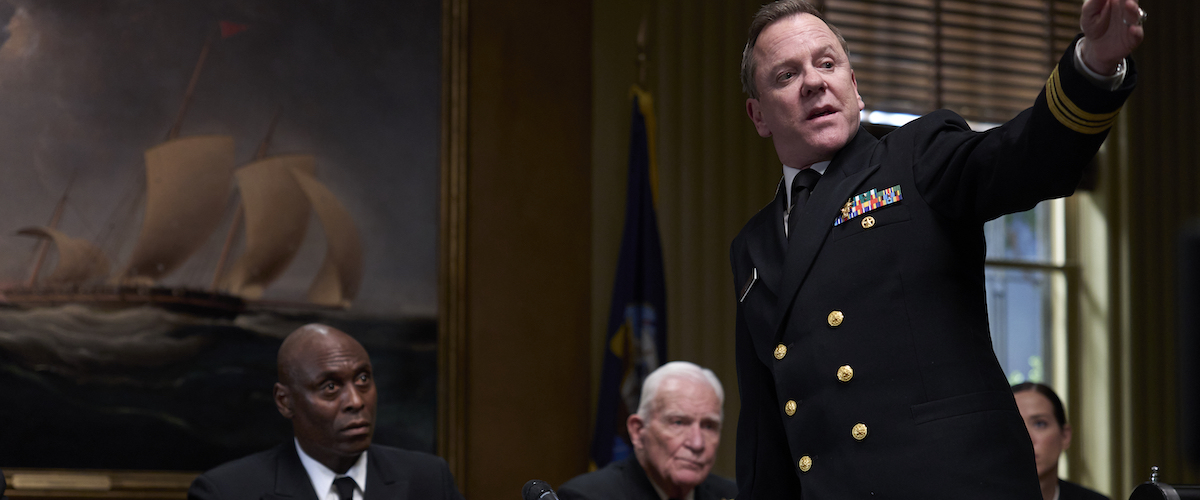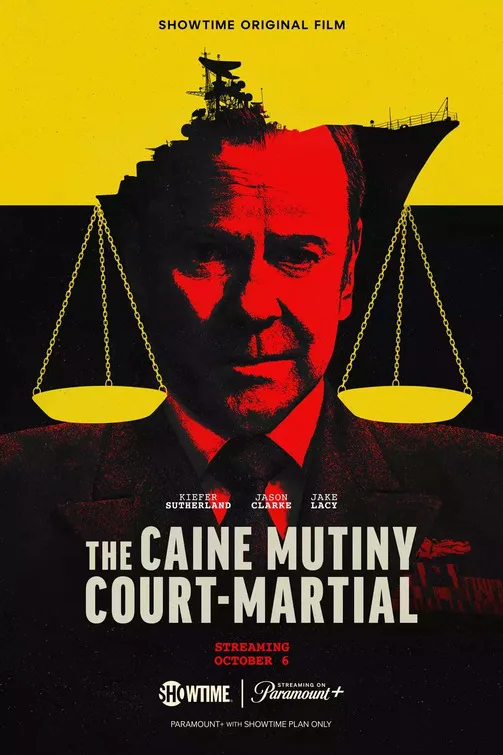The great William Friedkin’s final credit will be on this weekend’s excellent adaptation of “The Caine Mutiny Court-Martial,” a Showtime/Paramount+ film that might at first seem slight for the man who gave the world “The Exorcist” and “The French Connection,” but this is a deceptively brilliant piece of work, a reminder of the refined, undeniable abilities of its creator. Yes, it all takes place in one room, giving it an inherently theatrical quality, but Friedkin always could open up stage works for the screen without betraying what worked about them in their original form—look no further than “Bug,” for example. Here, his touch is incredibly subtle, making calculated choices with his camera and his cuts while directing an ace ensemble to captivating performances. When one takes a step back from this version of the timeless Herman Wouk tale of rebellion, one can appreciate what Friedkin brings to it and feel a pang of regret that we won’t get that specific gift again.
The bittersweet nature of “The Caine Mutiny Court-Martial” is in front of the camera, too, with the casting of the great Lance Reddick as Captain Luther Blakley, the head of a proceeding regarding the charge of mutiny against one Lieutenant Stephen Maryk (Jake Lacy). Reddick plays Blakley with such authority that it really grounds the whole affair, reminding one how much his gravity could impact a production. It’s almost like this is being heard by God.
The hearing of Lieutenant Maryk is a court-martial for mutiny aboard the Caine, a ship that was caught in a cyclone in the Strait of Hormuz. During a conflict over how to get the ship and its crew safely through this natural disaster, Maryk and a group of allies basically relieved Captain Phillip Queeg (Kiefer Sutherland) of his command. Now, Maryk may be the one on trial, but Defense Attorney Lieutenant Barney Greenwald (Jason Clarke) understands that Queeg will have to be the main defendant. If they can prove that Queeg wasn’t sane enough to captain the ship, Maryk will go free. Monica Raymund plays the lead prosecutor, Lewis Pullman plays Thomas Keefer (an ally of Maryk’s on that fateful day), and Tom Riley and Jay Duplass play further witnesses to Queeg and Maryk’s state of mind.
“The Caine Mutiny Court-Martial” doesn’t leave the hearing for most of its action. There are no flashbacks aboard the Caine, leaving viewers to form their own opinions via the testimony of the major players. From the beginning, Friedkin, cinematographer Michael Grady, and editor Darrin Navarro play subtle games with how this story is told. Take the first three testimonies. Queeg is framed mostly alone with few cuts and relatively close, giving him a majority of the frame in a manner that befits his captain role and the potential that he abused his power. The second witness, Keefer, is framed a little further back, allowing Raymund’s Commander Challee to share the frame and cut in a way that reflects his lower status from Queeg. Finally, an underling named Urban (Gabe Kessler) is shot from a distance so all the people in the room can be seen, making the witness small in the frame. These subtle choices impact what we think of these characters—Friedkin always made choices even when he wasn’t underlining and highlighting them in ways that lesser directors do.
And while he doesn’t lean into the readings of a film about a man inherently incapable of leading in a time of unexpected crisis, given the recent leadership failures around the world, it doesn’t seem coincidental that Friedkin is making this movie now. There’s a lesser version of this that makes its politics more obvious, although I would argue Friedkin doesn’t avoid that reading at all, especially in the final scenes that suggest leadership has partly collapsed because of the caliber of the men being led.
Friedkin was also a remarkable director of performance, and he brings Sutherland to one of the best acting turns of his career. Sutherland really only has two scenes—once as a witness for the prosecution and once as a witness for the defense—and he brings a unique energy to the legendary Queeg. This character has often been wide-eyed power run amok, but Sutherland presents him almost more as a victim of PTSD, someone whose anxiety has made him a monster. Macy and Pullman are also solid, but the stand-out beyond Sutherland is Clarke, especially how he nails Greenwald’s general reticence at taking down a final soldier and handles the infamous final scene.
Without spoiling, the last speech of “The Caine Mutiny Court-Martial” is designed to provoke the audience, and Friedkin loved to provoke. It’s so fitting that his final film contains such a divisive epilogue, a scene that arguably twists the perceived intent of the trial that came before it all, showing it all to just be broken products of a broken system. It’s perfect for a director who tore down the facades of societal norms like religion, authority, and even sanity. And it’s a reminder of what we’ve lost with his departure.
On Paramount+ tomorrow, October 6th, and on Showtime on October 8th.




















